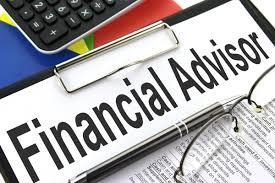Navigating the complexities of personal finance can be daunting. Whether you’re planning for retirement, saving for a child’s education, or building wealth, consulting a financial advisor is a wise step. Asking the right questions can help you make the most of this partnership. Below, we’ll explore the top 10 questions to ask your financial advisor to ensure they’re the right fit for your financial goals.
1. Why Should I Work With a Financial Advisor?
Benefits of Having a Financial Advisor
Hiring a financial advisor provides tailored advice, strategic planning, and emotional support during financial decisions. Advisors offer expertise in wealth management, tax planning, and risk mitigation.
Signs You Need Professional Financial Guidance
If you’re overwhelmed by financial decisions or unclear about your goals, it’s time to consider professional help. Complex life events like inheritance, divorce, or retirement often warrant expert guidance.
2. What Are Your Credentials and Experience?
Understanding Financial Advisor Certifications
Look for credentials like CFP (Certified Financial Planner) or CFA (Chartered Financial Analyst). These indicate rigorous training and adherence to ethical standards.
Importance of Experience in Financial Planning
Experience often translates to better insights and strategies. Inquire about their years in practice, client demographics, and areas of specialization.
3. What Services Do You Offer?
Comprehensive Financial Planning Services
Advisors may offer services ranging from budgeting to estate planning. Ensure their offerings align with your needs.
Specialized Services and Their Benefits
If you require niche services, such as small business financial planning, verify their expertise in these areas.
4. How Do You Get Paid?
Fee-Only vs. Commission-Based Advisors
Understanding how your advisor is compensated can help avoid conflicts of interest. Fee-only advisors charge a flat fee, while commission-based advisors earn from product sales.
Transparency in Financial Advisor Compensation
Ask for a clear breakdown of fees. Transparency builds trust and ensures you’re comfortable with their compensation structure.
5. What Is Your Investment Philosophy?
Understanding Risk Tolerance and Portfolio Diversification
Your advisor should assess your risk tolerance and diversify your portfolio accordingly. Ensure their philosophy aligns with your goals.
Active vs. Passive Investment Strategies
Discuss whether they favor active management (frequent trading) or passive strategies (index funds) and why.
6. How Will You Customize a Plan for Me?
Tailoring Plans to Individual Financial Goals
A one-size-fits-all approach doesn’t work. Your advisor should create a plan reflecting your unique goals, timeline, and risk preferences.
Incorporating Personal Circumstances and Risk Preferences
They should also account for life stages, family needs, and unforeseen circumstances.
7. What Will Our Communication Look Like?
Frequency of Meetings and Updates
Regular check-ins are vital. Determine how often they’ll review and update your plan.
Tools for Maintaining Transparency and Trust
Modern advisors may use dashboards or apps for transparency. Confirm how they’ll keep you informed.
8. Can You Provide References or Testimonials?
Assessing Client Satisfaction and Trustworthiness
Testimonials and references can provide insights into their professionalism and reliability.
Red Flags to Watch Out For
Be wary of advisors unwilling to share references or with inconsistent client feedback.
9. How Do You Measure Success?
Key Performance Indicators in Financial Planning
Success could mean hitting savings targets, portfolio growth, or achieving life goals. Clarify how they measure and communicate progress.
Long-Term vs. Short-Term Financial Success
Ensure their focus aligns with your priorities, whether it’s immediate stability or long-term growth.
10. What Happens If Something Goes Wrong?
Contingency Planning and Risk Management
A good advisor will have contingency plans for market downturns or unforeseen challenges.
Handling Disputes and Addressing Concerns
Inquire about their dispute resolution process to ensure a smooth relationship.
FAQs
How do I know if I need a financial advisor? If you’re unsure about financial decisions or have complex goals, an advisor can provide clarity and structure.
What should I bring to my first meeting with a financial advisor? Bring financial statements, tax returns, and a list of your goals and concerns.
Can I change financial advisors if I’m unhappy? Yes. Review your agreement for any termination clauses and find someone better suited to your needs.
What is the typical cost of hiring a financial advisor? Costs vary by fee structure. Fee-only advisors typically charge $150–$300 per hour or a percentage of assets managed.
Do financial advisors have a fiduciary duty? Not all do. Ask if they’re bound by fiduciary duty, meaning they must act in your best interest.
How do I find a reliable financial advisor? Use referrals, professional organizations, or online directories. Always verify credentials and reviews.
Conclusion
Choosing the right financial advisor starts with asking the right questions. By clarifying their credentials, philosophy, and approach, you’ll ensure a partnership that fosters financial success.










1 comment